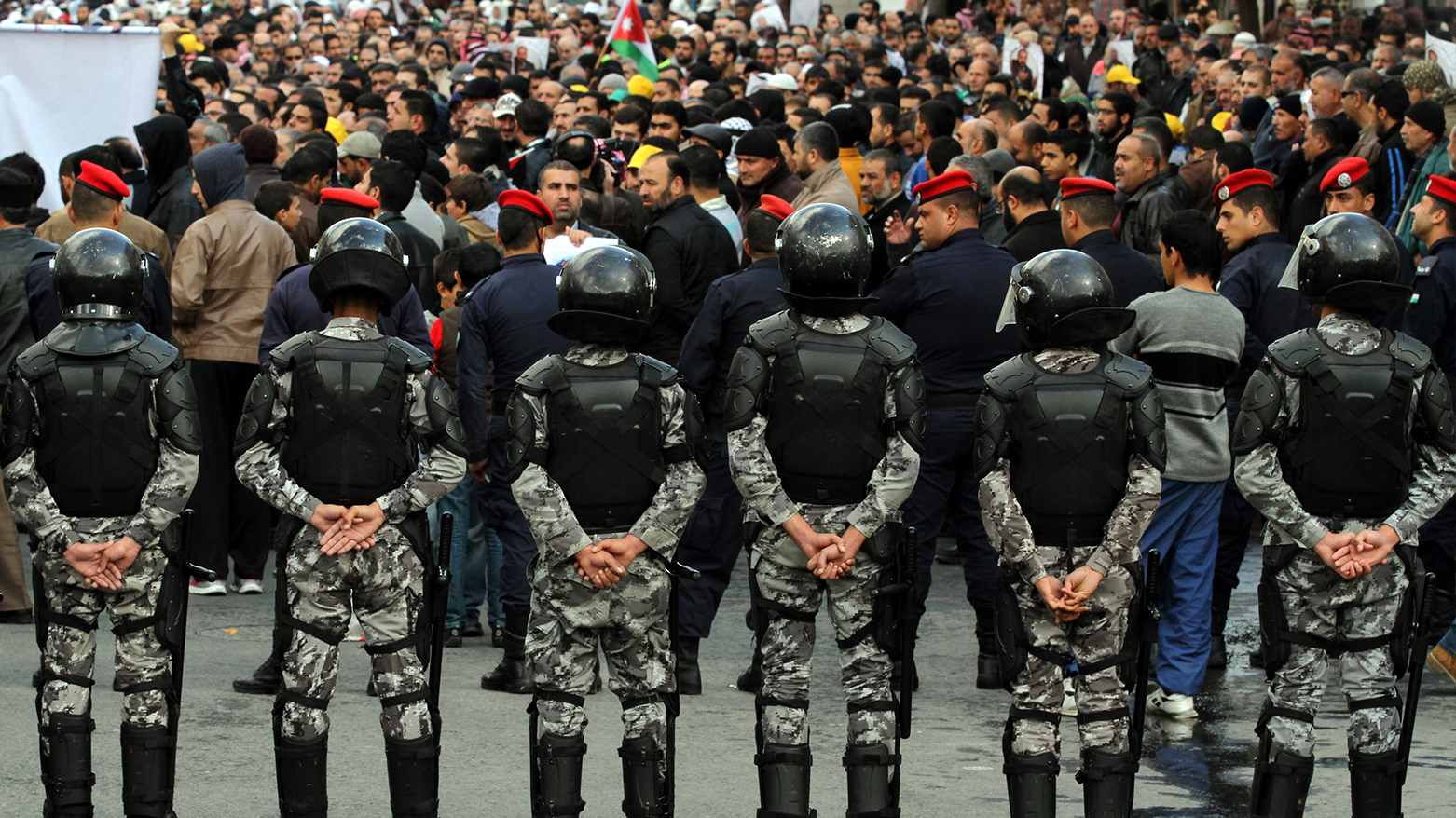Jordan Formally Bans Muslim Brotherhood Activities After Eight Decades of Tolerance
The ban reflects a broader regional trend in which states are re-evaluating their tolerance of Islamist political groups amid mounting concerns over radicalization, militancy, and foreign influence.

By Ahora Qadi
ERBIL (Kurdistan 24) – Jordan’s government has officially outlawed all activities linked to the Muslim Brotherhood, marking a pivotal shift in the country's internal policy after decades of ambivalence toward the influential Islamist group.
Speaking during a press conference in Amman on Wednesday, Jordanian Interior Minister Mazen al-Faraya confirmed that “all activities of the Muslim Brotherhood are now prohibited.” The announcement comes after 80 years of the group operating semi-legally in the Kingdom, often navigating a complex relationship with successive Jordanian administrations.
“Any activity affiliated with the Brotherhood will now be considered illegal under Jordanian law,” al-Faraya said, warning that membership in the group, or promotion of its ideology, is now explicitly banned.
The Brotherhood has yet to issue an official statement on the ban. However, its political wing, the Islamic Action Front—which holds 10 seats in Jordan’s parliament—stated that it will continue to function “as an independent national party, entirely separate from any other entity.”
Government Orders Shutdown of Brotherhood Premises
Minister al-Faraya further stressed that the government had already begun shuttering properties and offices used by the Brotherhood across the Kingdom, regardless of whether those premises were shared with other parties.
He also cautioned media outlets, political parties, and social media influencers against publishing content affiliated with the Brotherhood. “Legal action will be taken against anyone disseminating or amplifying their messaging,” he said.
A special commission has reportedly been tasked with the immediate seizure of the Brotherhood’s assets in Jordan.
Terrorism Plot Allegations Add Urgency
The crackdown follows the arrest last week of 16 individuals linked to what authorities describe as a “major destabilization plot” in Jordan. According to security services, the group had been working on plans involving the construction of homemade ballistic missiles, drone prototypes, and rocket-propelled grenades, in addition to training militants both inside and outside Jordan.
Although the Muslim Brotherhood has not been officially linked to this plot, analysts suggest the timing of the ban is no coincidence.
On Tuesday, the Palestinian group Hamas—which has ideological and historical ties to the Muslim Brotherhood—called for the release of the detainees, claiming they were “working in solidarity with Palestine” and had no intention of undermining Jordan’s security.
Brotherhood’s radicalization Reach
Founded in Egypt in 1928 by Hassan al-Banna, the Muslim Brotherhood is widely recognized as the most influential Islamist movement in modern history. Its stated goal has been to establish Islamic governance based on shari’a law. Over the years, it has spread throughout the Arab world and into parts of Europe, igniting other movements such as Jamaat-e-Islami in South Asia.
The group has long faced opposition from regimes across the Middle East. In countries such as Syria, Iraq, and Tunisia, Brotherhood affiliates have historically faced state crackdowns, often forcing members to seek refuge abroad. In Europe, they have since established community organizations and religious centers, particularly in the UK, France, and Germany.
Jordan’s move places it among a growing number of states that have either outlawed or severely curtailed the Brotherhood’s presence, citing security concerns and allegations of extremism.
“Despite the dissolution of the Brotherhood by court ruling, its members continue to operate in the shadows in ways that threaten national unity and security,” Minister Al-Faraya warned.
An Islamist Identity in Retreat?
The ban reflects a broader regional trend in which states are re-evaluating their tolerance of Islamist political groups amid mounting concerns over radicalization, militancy, and foreign influence. While the Brotherhood continues to deny involvement in violent activity, its transnational ideological footprint has made it a subject of deep scrutiny and controversy.
As the crackdown intensifies, observers are watching closely to see whether Jordan’s actions will trigger legal challenges, international criticism, or internal unrest—particularly given the Brotherhood’s historical social base and enduring influence in Jordanian society.